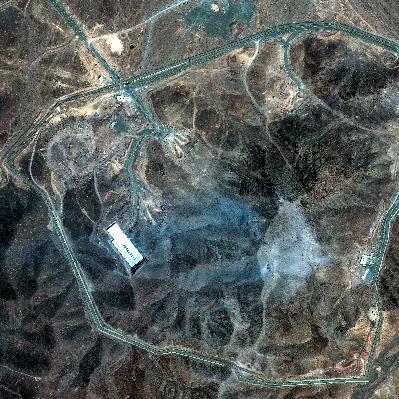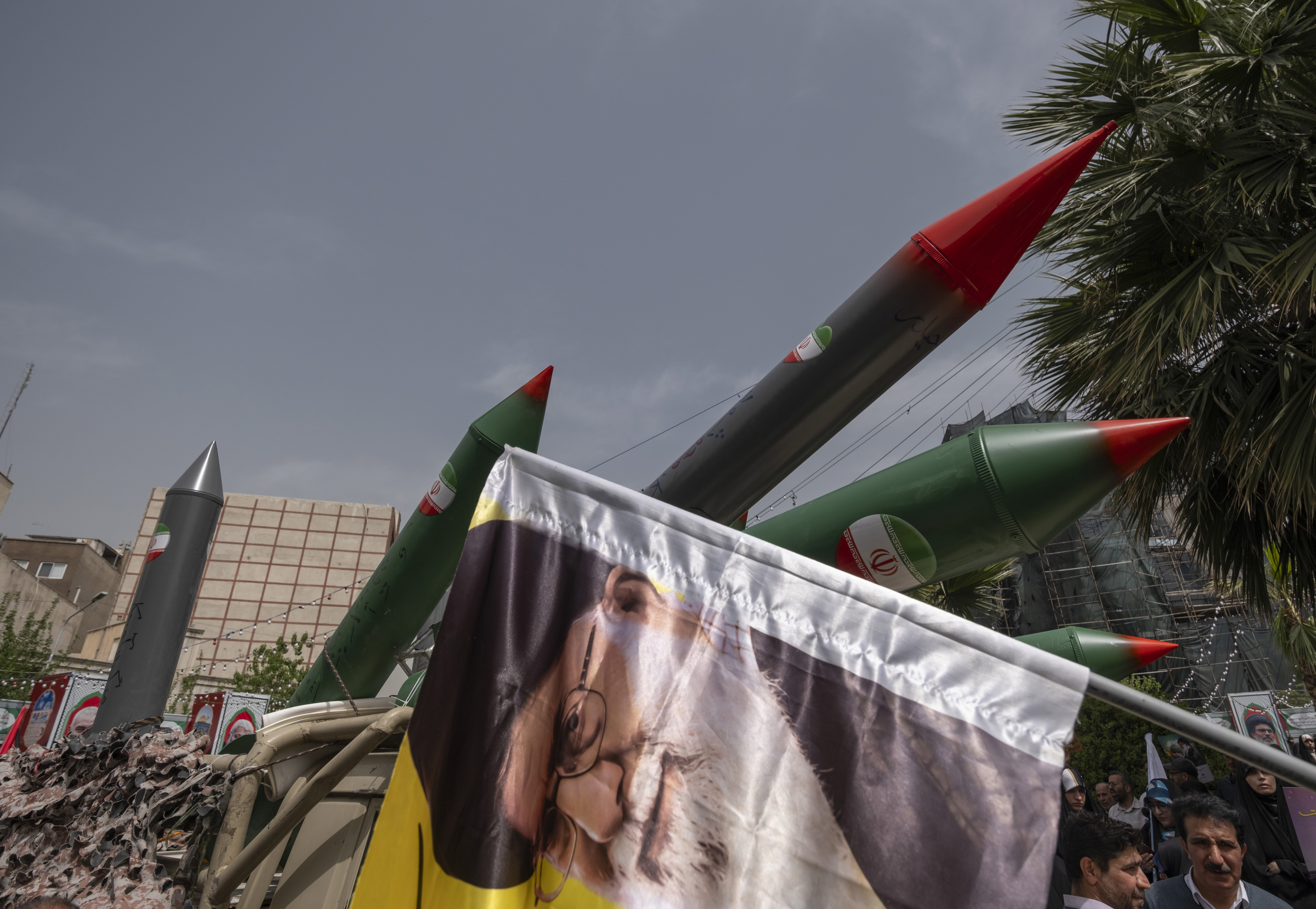John Spencer’s Key Takeaways After the 12-Day War: Air Supremacy, Intelligence, and Deterrence
Description
John Spencer, Chair of Urban Warfare Studies at West Point, joins guest host Casey Kustin, AJC’s Chief Impact and Operations Officer, to break down Israel’s high-stakes strike on Iran’s nuclear infrastructure and the U.S. decision to enter the fight. With Iran’s terror proxy network reportedly dismantled and its nuclear program set back by years, Spencer explains how Israel achieved total air superiority, why a wider regional war never materialized, and whether the fragile ceasefire will hold. He also critiques the international media’s coverage and warns of the global consequences if Iran’s ambitions are left unchecked.
Take Action:
-
Take 15 seconds and urge your elected leaders to send a clear, united message: We stand with Israel. Take action now.
Resources and Analysis:
-
Israel, Iran, and a Reshaped Middle East: AJC Global Experts on What Comes Next
-
AJC Advocacy Anywhere - U.S. Strikes in Iran and What Comes Next
-
Iranian Regime’s War on America: Four Decades of Targeting U.S. Forces and Citizens
-
AJC Global Forum 2025: John Spencer Breaks Down Israel’s War and Media Misinformation
Listen – AJC Podcasts:
Follow People of the Pod on your favorite podcast app, and learn more at AJC.org/PeopleofthePod
You can reach us at: peopleofthepod@ajc.org
If you’ve appreciated this episode, please be sure to tell your friends, and rate and review us on Apple Podcasts or Spotify.
Transcript of the Interview:
Casey Kustin:
Hi, I'm Casey Kustin, AJC's Chief Impact and Operations Officer, and I have the pleasure of guest hosting this week's episode.
As of the start of this recording on Wednesday, June 25, it's been 13 days since Israel launched precision airstrikes aimed at dismantling the Iranian regime's nuclear infrastructure and degrading its ballistic missile capabilities to help us understand what transpired and where we are now, I'm here with John Spencer, Chair of Urban Warfare Studies at the Modern War Institute at West Point, co-director of the Urban Warfare Project and Executive Director of the Urban Warfare Institute.
John, welcome to People of the Pod.
John Spencer:
Hey, Casey, it's good to see you again.
Casey Kustin:
Thanks so much for joining us. John, you described Israel's campaign as one of the most sophisticated preemptive strike campaigns in modern history, and certainly the scope and precision was impressive. What specific operational capabilities enabled Israel to dominate the Iranian airspace so completely?
John Spencer:
Yeah, that's a great question, and I do believe it basically rewrote the book, much like after the 1973 Yom Kippur War, where Israel did the unthinkable, the United States military conducted 27 different studies, and it fundamentally changed the way we fight warfare. It's called Air-Land Battle. I think similarly with Operation Rising Lion, just the opening campaign rewrote what we would call, you know, Shock and Awe, Joint Forcible Entry, things like that.
And the capabilities that enabled it, of course, were years of planning and preparation. Just the deep intelligence infiltration that Israel did before the first round was dropped. The Mossad agents texting the high command of the IRGC to have a meeting, all of them believing the texts. And it was a meeting about Israel. They all coming together. And then Israel blew up that meeting and killed, you know, in the opening 72 hours, killed over 25 senior commanders, nine nuclear scientists, all of that before the first bomb was dropped.
But even in the opening campaign, Israel put up over 200 aircrafts, almost the entire Israeli air force in the sky over Iran, dominating and immediately achieving what we call air supremacy. Again, through years of work, almost like a science fiction story, infiltrating drone parts and short range missiles into Iran, then having agents put those next to air defense radars and ballistic air defense missile systems. So that as soon as this was about to begin, those drones lost low cost drones and short range missiles attacked Iranian air defense capabilities to give the window for all of the Israeli F-35 Eyes that they've improved for the US military since October 7 and other aircraft.
Doing one of the longest operations, seconded only to one other mission that Israel has done in their history, to do this just paralyzing operation in the opening moment, and then they didn't stop. So it was a combination of the infiltration intelligence, the low-tech, like the drones, high-tech, advanced radar, missiles, things like that. And it was all put together and synchronized, right? So this is the really important thing that people kind of miss in military operations, is how hard it is to synchronize every bit of that, right? So the attack on the generals, the attack on the air defenses, all of that synchronized. Hundreds of assets in a matter of minutes, all working together. There's so much chance for error, but this was perfection.
Casey Kustin:
So this wasn't just an operational success, it was really strategic dominance, and given that Iran failed to down a single Israeli Aircraft or cause any significant damage to any of Israel's assets. What does that tell us about the effectiveness of Iran's military capabilities, their Russian built air defenses that they have touted for so long?
John Spencer:
Absolutely. And some people say, I over emphasize tactics. But of course, there's some famous sayings about this. At the strategic level, Israel, one, demonstrated their military superiority. A small nation going against a Goliath, a David against a Goliath. It penetrated the Iranian myth of invincibility. And I also failed to mention about how Israel, during this opening of the campaign, weakened Iran's ability to respond. So they targeted ballistic missile launchers and ballistic missile storages, so Iran was really weakened Iran’s ability to respond.
But you're right, this sent a signal around the Middle East that this paper tiger could be, not just hit, it could be dominated. And from the opening moments of the operation until the ceasefire was agreed to, Israel eventually achieved air supremacy and could dominate the skies, like you said, without losing a single aircraft, with his really historic as well. And hit what they wanted with what they wanted, all the military infrastructure, all the senior leaders. I mean, eventually they assigned a new commander of the IRGC, and Israel found that guy, despite him running around in caves and things.
It definitely had a strategic impact on the signal to the world on Israel's capabilities. And this isn't just about aircraft and airstrikes. Israel's complete dominance of Iran and the weakness, like you said. Although Israel also taught the world back when they responded to Iran's attack in April of last year, and in October of last year, is that you probably shouldn't be buying Russian air defense systems like S-300s. But Iran still, that was the backbone of their air defense capabilities, and Israel showed that that's a really bad idea.
Casey Kustin:
You mentioned the component of this that was not just about going after infrastructure sites, but targeting Iranian military leadership and over 20 senior military and nuclear figures, according to public reporting. This was really a central part of this campaign as well. How does this kind of decapitation strategy alter the regime's military capability now, both in this immediate
























